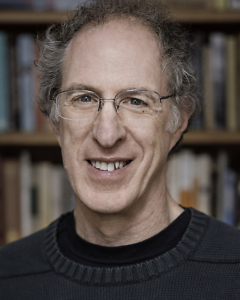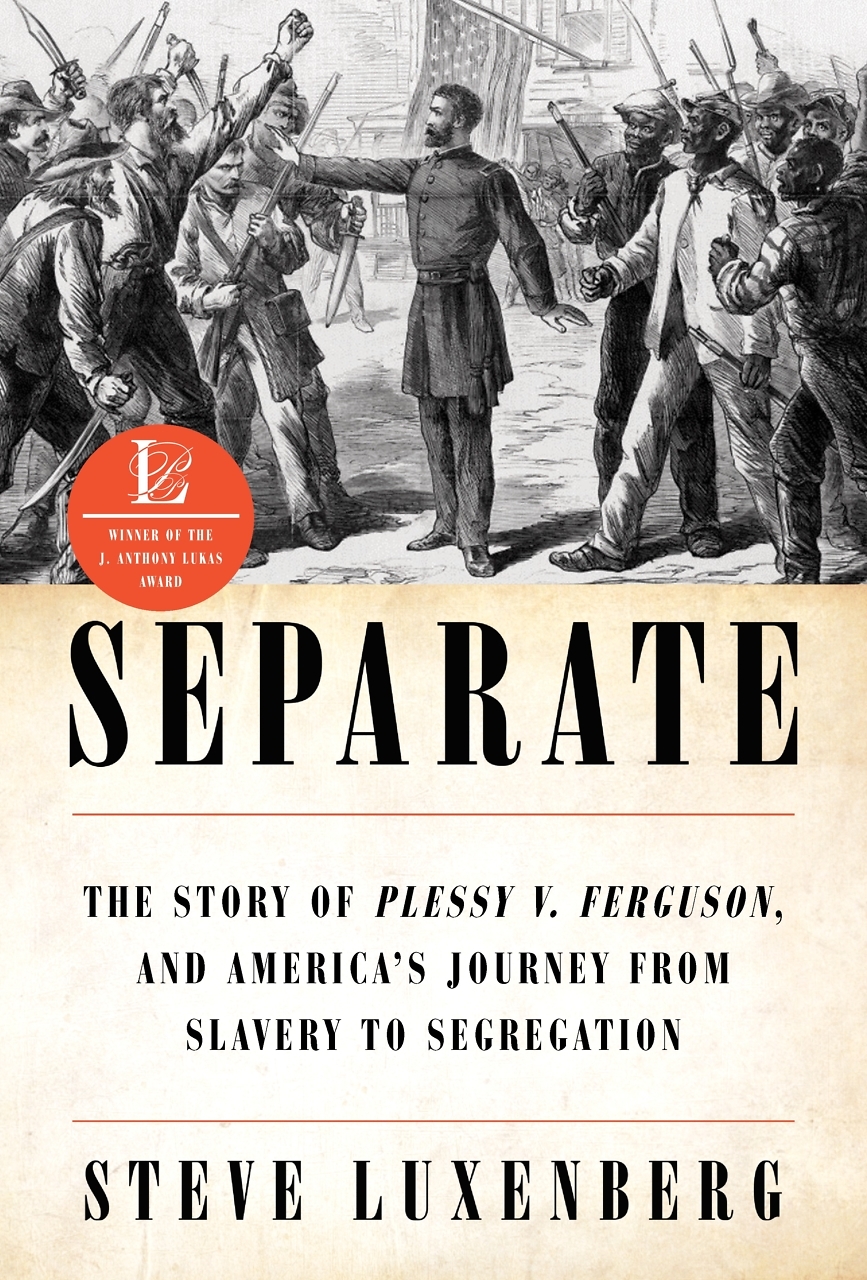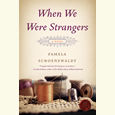Critical Reading
John Kaltner’s focused analysis of Islam’s sacred text offers insight and corrects misunderstandings
According to John Kaltner, most Americans have no idea what’s in the Qur’an––or Koran, as Islam’s sacred text is also known. That doesn’t stop many of them from having an opinion, however. The Muslim faith is regularly denigrated as inherently sexist, violent, and inflexible. In an effort to correct such misunderstandings, Kaltner, a professor of Muslim-Christian relations at Rhodes College in Memphis, has written Introducing the Qur’an for Today’s Reader, a critical reading of the Qur’an that focuses on some of the text’s more controversial themes.
Kaltner’s tools in this endeavor are the same methods and perspectives of literary criticism that have been applied to the Christian Bible––with strikingly similar results. As with the Bible, those looking to the Qur’an for internal consistency and historical play-by-play are liable to be disappointed. What emerges, instead, is a multi-layered document that’s encountered in many different ways by Muslims and non-Muslims alike. On matters like the environment, sexuality, and jihad, the Qur’an is far from silent, but its answers are anything but cut-and-dried. For Muslims, the Qur’an is God’s word brought into the realm of the everyday––an everyday that seems to change as much as it stays the same. “In this way,” says Kaltner, the Qur’an’s message “remains transcendent, but its effects on the here and now are acknowledged.”
In a recent email exchange, Professor Kaltner answered questions about the Qur’an, its varied interpretations, and its place in America’s national debate.
Chapter 16: Does it typically comfort people to learn that the Qur’an is subject to the same textual hobgoblins and internal inconsistencies as the Bible? I’m thinking of ambiguous passages that have been misappropriated for hegemonic purposes––like requiring women to be veiled (in the case of the Qur’an) and requiring women to be submissive to their husbands (in the case of the Bible). Do you think these similarities make Islam seem less threatening to the average reader, or do they simply make the whole monotheistic endeavor seem suspect?
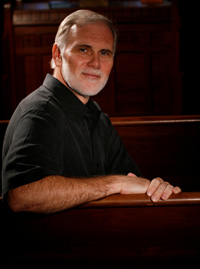 Kaltner: Like the Bible, the Qur’an isn’t always consistent in its presentation or treatment of a given theme. People on each side sometimes exploit that fact to argue that the text of the other is therefore unreliable or flawed. That is, Muslims sometimes point to the inconsistencies in the Bible to claim it’s imperfect, and some Christians and Jews do the same thing with the Qur’an. Of course, people for whom the text is a revealed scripture have various ways of explaining or dealing with the discrepancies that allow them to maintain its privileged status. It’s therefore somewhat ironic that the two texts share a feature––inconsistency––that actually sometimes serves to further divide members of the various faith communities.
Kaltner: Like the Bible, the Qur’an isn’t always consistent in its presentation or treatment of a given theme. People on each side sometimes exploit that fact to argue that the text of the other is therefore unreliable or flawed. That is, Muslims sometimes point to the inconsistencies in the Bible to claim it’s imperfect, and some Christians and Jews do the same thing with the Qur’an. Of course, people for whom the text is a revealed scripture have various ways of explaining or dealing with the discrepancies that allow them to maintain its privileged status. It’s therefore somewhat ironic that the two texts share a feature––inconsistency––that actually sometimes serves to further divide members of the various faith communities.
I don’t think the presence of contradictions in the Bible and Qur’an should necessarily cause one to become suspicious or distrustful of the texts. These works are the products of a long process of formulation and transmission, and they attempted to respond to a variety of contexts. It therefore shouldn’t be too surprising that the message sometimes changed depending on the circumstances. What’s required is a rethinking of the nature of the books. Certain passages are not relevant for later times and places like our own because our context is radically different from that of the original audience. The issue of how men and women should relate to one another is a good example of this. The biblical and Islamic traditions were originally addressed to a world in which there wasn’t equality between the genders, and certain sections of both texts reflect that situation. They should be irrelevant for those in our day and age who don’t share that worldview.
Chapter 16: Does the practice of abrogation––the belief that God’s revelations can change over time––which is built into much study of the Qur’an, give practitioners of Islam an edge when it comes to sorting out internal inconsistencies?
Kaltner: Abrogation is one of those coping mechanisms I just mentioned that help to address the uncomfortable fact that the Qur’an doesn’t always speak with one voice. I think you’re quite right that it does give “an edge” in the sense that it offers a way of understanding the phenomenon of inconsistency. In fact, that edge is built right into the text itself because in several places the Qur’an refers to its own abrogating nature by saying that later passages render null and void earlier passages that disagree with them. There’s no equivalent in the Bible, and that isn’t too surprising because the Bible is nowhere near as self-reflective as the Qur’an, which often refers to itself.
But there are certain problems with abrogation in the Qur’an that don’t make things as cut-and-dry as they might first appear to be. Perhaps the biggest one is that the text isn’t presented in chronological order (neither is the Bible), and there is sometimes no clear agreement among scholars over which of two passages came later. So when you have two conflicting sections it isn’t always certain which is the abrogating one and which the abrogated. Despite such challenges, I’ve always found the notion of abrogation to be an important recognition on the Qur’an’s part of the important role context plays and the way a text’s meaning can evolve over time. As I mentioned, the Bible isn’t as blunt and obvious about this, but Jews and Christians often instinctively read in this way by distinguishing between passages that are relevant for us today and those that are not. What else are you going to do with a verse like Exodus 21:17 and its command to execute anyone who curses their father or mother?
Chapter 16: It seems inevitable that, by the time they reach the national stage, discussions about Islam––and Christianity, for that matter––devolve into political manipulations that feed on heavy-handed interpretations of scripture. How can we turn what seems like a cynical attempt to get votes into a meaningful dialogue?
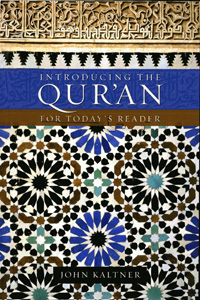 Kaltner: You’re quite right about that, and we’re seeing even more of it lately as the 2012 presidential campaign kicks into high gear. Herman Cain was the one most adept at stoking the fears and misperceptions many Americans have about Islam. He presented a shockingly distorted and misinformed view of Muslims and their faith in a failed attempt to garner as many votes as possible. Fortunately, he’s left the political arena––for now––but there’s a bit of Cain in many of our politicians who continue to demonize and denigrate Islam.
Kaltner: You’re quite right about that, and we’re seeing even more of it lately as the 2012 presidential campaign kicks into high gear. Herman Cain was the one most adept at stoking the fears and misperceptions many Americans have about Islam. He presented a shockingly distorted and misinformed view of Muslims and their faith in a failed attempt to garner as many votes as possible. Fortunately, he’s left the political arena––for now––but there’s a bit of Cain in many of our politicians who continue to demonize and denigrate Islam.
It would be a step in the right direction if candidates were to actually talk to Muslims rather than talk about them. Why not have a debate among the presidential candidates that takes place in a mosque or an Islamic center, during which members of the community could ask questions and express their concerns? Just think of how much we’d be able to learn about the candidates’ views on Islam if they had to respond to spontaneous questions from a Muslim audience rather than rehearse the same tired answers to the same old questions that journalists lob at them. Of course such a thing will never happen, and the reasons why it won’t tell us a great deal about the flaws in the American political system.
Chapter 16: Is there value in keeping such discussions at the local level: in churches, mosques, libraries, etc.?
Kaltner: I think it’s important that discussion takes place on the local level, but it would be a mistake to stop there or to discourage a broader conversation on the state or national level. The problem is that local-level discussions don’t take place frequently enough since many people tend to start on the national level and never move to the local. How often do people from different faith traditions get together to talk about what’s going on in their communities and the role religion can play in addressing their common concerns? That type of conversation takes place very rarely, but it’s essential because it enables us to see the other as he or she really is and not as we imagine them to be. It’s amazing how many stereotypes can be shattered in the course of a simple fifteen-minute conversation! If we were to experience that kind of breakthrough on the local level, the trickle-up effect for society at large would be profound and enduring. Being open to changing one’s attitudes and beliefs about those who are different from ourselves is never easy, but it’s the surest way to overcome ignorance and prejudice.
Chapter 16: The Qur’an is said to be revealed and complete. In fact, it’s fairly silent on matters of historic context and provides little information regarding practices that have become mainstream: stoning of adulterers, the wearing of the hijab, etc. Do you see a connection between the Qur’an’s lack of detail and the rise of conservative Islam?
Kaltner: Despite what many people claim, texts like the Qur’an and the Bible don’t really “say” anything. They always have to be interpreted by flesh-and-blood readers who give them meaning and significance. That’s why two people can look at the same passage and come to different conclusions about what it means. When you add to that your point that the Qur’an (as well as the Bible) often lacks detail, the interpretive act becomes all the more necessary and important. In that sense, you’re correct that the lack of information in the text enables the creation and perpetuation of interpretations that might be labeled “conservative.”
But it’s important to note that at the same time it also makes possible readings and interpretations of the text that are more progressive. What sort of interpretation one gives to a text is a result of various factors, with one’s own social location and personal context being one of the most important. Many non-Muslims don’t realize that in recent years new ways of interpreting the Qur’an have begun to emerge, and they’re having an effect on how Muslims understand their sacred text. For example, Muslim feminists are now reading the Qur’an in ways that challenge long-held interpretations that have tended to privilege men at the expense of women. Similarly, more and more Muslims, both scholars and non-specialists, are exploring what the Qur’an has to say about issues like homosexuality, human rights, relations with non-Muslims, and the environment. Historically, more conservative interpretations have tended to dominate the ways the Qur’an has been read, but some of these developments indicate that new approaches are on the horizon that will move things in exciting new directions.
Chapter 16: In your chapter “The Natural Environment,” you point out that some Islamic scholars maintain that nature itself is Muslim, “because the act of submission that is central to the faith is something nature does naturally.” Yet many Muslims see the environmental movement as yet another arena for Western control, designed to limit Islamic economic potential. Are there points of contact between Western notions of environmentalism and Islamic understandings regarding nature as an example of perfect religious practice? If so, how might these be used to enhance mutual understanding?
Kaltner: There’s a wonderful little parable found in verse 10:24 of the Qur’an that I end that chapter on. I think it captures very well the Islamic perspective on humanity’s place in the environment, and it’s one that can speak to non-Muslims as well. It describes an earth in which all its elements function in harmony until the humans begin to think they’re in charge and try to dominate things. It challenges us to be aware of how we relate to the non-human parts of creation with which we share our environment:
The life of this world is like this––the water We send down from the sky irrigates the earth’s vegetation, from which humans and animals eat. Just when the earth is in its most colorful and beautiful state, its people think they have control over it. Then Our command comes to pass, by night or by day, and We cut it down as if it had not been flourishing the day before. In this way We explain the signs for a people who reflect.
Regardless of one’s religious affiliation, or lack thereof, this is a text that can serve as a springboard for some fruitful and important conversation among people regarding the causes and effects of human exploitation of the environment.


